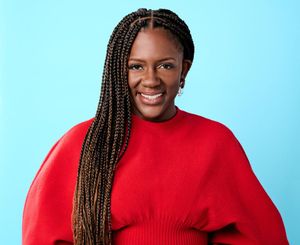Originally published by Forbes on January 12, 2023
In March 2021, Monique Woodard closed part of the first fund for her new venture capital firm, Cake Ventures, and got to work. Many firms point to technological changes as the north star for their portfolios; a smaller but growing number focus on underrepresented founders who can get overlooked by some of Silicon Valley’s traditional check writers.
Woodard, a veteran of startups and VC for two decades, was more interested in new businesses driving demographic change in a handful of very specific areas three complementary “layers” of a cake: our aging and longevity-minded population; the increased earning power of women in society; and the shift to “majority-minority,” as Woodard put it, a “new majority” of early tech adopters coming from Asian, Black and Latino backgrounds.
Startups that fit such a thesis, according to Woodard, would cater to customer bases that reflected such layers. Take Rares, a social investing site enabling fractional ownership of collectives like sneakers, which embraces Black, Latin and Asian cultural influences; or Most Days, an app for setting healthy routines in areas like sleep and depression, that is mostly used by women.
“It’s the lens through which I view companies,” Woodard told Forbes— and a thesis, she claimed, that didn’t quite fit an existing firm. “Even companies that don’t ‘look like’ demographic change companies on the surface have a layer of this under the hood.”
Now, after holding Cake Ventures’ final close in November, the San Francisco-based Woodard is announcing her first fund. A $17 million vehicle, the fund will focus on pre-seed and seed investments, targeting a ballpark $500,000 check. Woodard serves as founding partner and managing director of the firm but plans to hire a venture partner and junior investment staff later this year.
Cake will look to make about 25 investments overall from its fund; Woodard has made 12 so far. The portfolio already includes companies like Rares and Most Days, but also training startup Bright, household bills tracker Gerald, disability and neuro-divergence support business Joshin, among others. Despite such status not being a prerequisite for investment, about 40% of its investments to date are led by women founders, Woodard said, and 40% by founders who identify as Black—a natural consequence, Woodard added, of “changing who sits on the investor side of the table.”
Backing the new fund are limited partners including Bank of America, Cendana Ventures, Foundry Group, Gates’ Pivotal Ventures, Plexo Capital and Screendoor. (Woodard said that more than 25% of LP dollars committed came from female investors.) At Pivotal, the investment arm of billionaire philanthropist Melinda French Gates, investments director Erin Harkless Moore said Woodard impressed while serving as an advisor and mentor to a TechStars accelerator focused on longevity that Pivotal co-sponsored.
“So many more funds out there now are focusing on ‘diversity,’ or diverse founders, or diverse demographics,” Harkless Moore said. “Where Monique is differentiated is that she’s going a layer deeper with the depth of her research and looking at the type of products and services and tech that these consumers need.” Woodard wrote a report on aging called “Gray New World” in 2020, Harkless Moore noted, that demonstrated her thinking about the ramifications of an aging populace. That led to an investment in Guaranteed, which is looking to use technology to revamp end-of-life care.
Despite such support, Woodard said that raising Cake Ventures’ first fund was a challenging process, despite a career that has included building and selling an ad network, launching a mobile shopping startup, and stints as a Venture Partner at 500 Startups, a Venture Scout at Lightspeed Venture Partners and an ongoing advising role with SoftBank Vision Fund’s Emerge startup accelerator.
Woodard planned to raise $20 million initially; she ultimately chose to close the fund and move forward with less. “I’ve said before that raising a fund is doing venture capital on hard mode. And raising a fund as a woman is like crawling through glass, and raising a fund as a Black woman is like crawling through glass with no clothes on, and then they pour fire ants all over you,” she said. “So it was always going to be hard.”
For startups also finding the current funding environment challenging, Woodard said she hadn’t seen a meaningful slowdown in entrepreneurs launching new businesses at her early-stage vantage point. The valuations at which investors price such startups have continued to drop, however, she said.
And while many eyes in venture are currently turned toward artificial intelligence and generative AI apps (as perhaps they did for crypto and Web3 before it), Woodard said she’s playing a different game. “A lot of those technologies are important and great—defining technologies,” she said. “But I think what people are forgetting, frankly, are the people.” The user base, she added, for such products is shifting. Ignore that, and you could end up building for an empty room.

